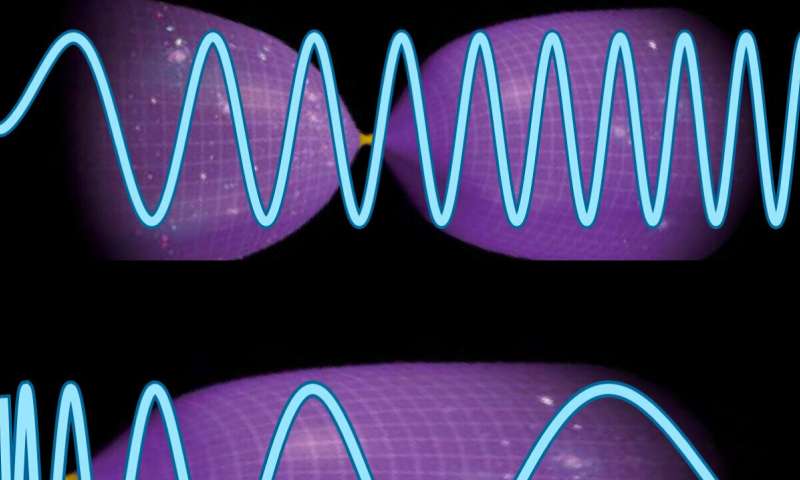Best of Last Week – What happened before the Big Bang, a new class of pentaquarks and celibacy rates rising in the U.S.

It was a big week for physics as a team with members from the Center for Astrophysics, Smithsonian and Harvard University, presented some ideas on what happened before the Big Bang by applying what they describe as a primordial standard clock to non-inflationary theories. Also, a team working on the GRAVITY Collaboration described work that involved testing Einstein's equivalence principle near a supermassive black hole. And a team from the U.S., Austria and Brazil looked at matter waves and quantum splinters as part of their work involving shaking ultracold Bose-Einstein condensates. Also, a team led by a group at MIT running a dark matter experiment found no evidence of axions—their experiment involved use of a chilled, doughnut-shaped magnet as a detector. And a team at Louisiana State University measured quantum 'back action' in the audio band at room temperature while listening to the quantum vacuum, providing hints at methods that might be used to improve the sensitivity of gravitational wave detectors. Also, a pair of physicists, Tomasz Skwarnicki with Syracuse University and Liming Zhang with Tsinghua University, announced that they had discovered a new class of pentaquarks.
In other news, a team led by Daniel Preston of Harvard University demonstrated a rubber computer that eliminates the last hard components from soft robots. They built a soft robot that forces a balloon to submerge and resurface on demand with no hard electronic parts, the first demonstration of such abilities. And a pair of researchers, Francis Mollica and Steven Piantadosi, estimated that it takes approximately 1.5 megabytes of data to store language information in the brain. Also, another team led by Jingyu Cao with the University of Science and Technology of China announced that they had discovered a potential sustainable energy technology for the household refrigerator—a new way to use cold air escaping from the freezer compartment to chill the refrigerator compartment.
And finally, if you are an adult American and have noticed that your sex life has diminished, you have a lot of company, as a team working at the Washington Post found that rates of celibate Americans are at a record high—calling it "the Great Sex Recession," the team suggests it might be linked to video game playing and use of porn by young males.
© 2019 Science X Network